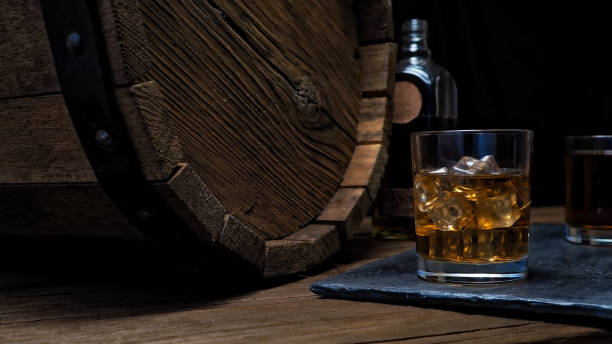
You might be asking yourself, “isn’t a whisky for enjoying after a long day’s hard work?” Yes. It is – but did you know that whisky is a much better investment than gold?
Recently an old alternative investment is making waves as it outperforms artwork, Chanel handbags, and classic cars. Whisky has become the new gold – according to the Wall Street Journal which recently reported that ‘the standard indicator of rare whiskies’ has grown by a whopping 564% over the past decade. Gold, on the other hand, increased by only a mere 360%!
Investing in whisky can greatly improve one’s fortunes. Suppose it with an average price of $22 per bottle, it would take little time and trouble to amass a sizable collection; one that will surely appreciate each time. And if you have the fiscal coffers, why not buy two top-shelf bottles for $100 every month? That way, as the times go by and your collection keeps growing in size and value, so will your net worth. Sure, this is going to bear some trouble on your part. But when you think about how it’s possible to become a millionaire from such an otherwise modest investment – well, it might be worth it!
1. When choosing a wine or cask broker, trustworthiness is key.
Seek out merchandisers who are knowledgeable and passionate about whiskey. They will give you no bank and glasses when dealing with them and will help you make the wisest investment possible. For example, when you buy a cask of whiskey you should have the occasion to taste it before paying for it. Most whiskey retailers give price and listing information, but many let you taste the wares before copping it.
2. Only invest in what you’re able to
You can begin with any quantum you’d like. Start with just a couple of bottles. Five-year-old whisky casks tend to start from £4,000 – which is an ideal jumping-off point to launch your collection.
3. Some casks are better than the others.
Investing in whisky requires a certain quantum of perceptiveness if you want to get the most for your plutocrat.
It can be perplexing in its breadth and detail, and it’s hard to know where to go next with your plutocrat. Deciding which barrel to invest in is, maybe, the most pivotal step that you should take as an investor. There are numerous options available in the request, but doing your schoolwork on each bone is essential before committing your plutocrat.
A tip for uninitiated investors: Know everything about the numerous kinds of investments so that you can diversify your portfolio.
4. Tolerance in Flippers.
Flippers are the whisky fellow of scalpers. They buy limited releases to deal them on at a profit shortly after they sell out. As utmost collectors seek out rare whiskies for their enjoyment, flippers have a bad character in the community. The dilemma of buying whisky is that some buyers are more interested in the quick buck than they’re in the artificer of the drink, but tolerance and time will reward those who have faith.
5. Map your investment plan.
Several types of whisky investments live, including bottles and barrels. Each type has its pros and cons. For those less interested in the spirit, buying bottles is a more palpable investment but may take further trouble than copping shares. Barrel investment allows investors more freedom with the spirit to either sell it back to distilleries or bottle their yield. In addition to the cost of the storehouse, one must consider the implicit threat that prices will drop over time.
6. Industry knowledge is a must-have.
The stylish way to go about investing in whisky is to know a lot about whisky. You should do your exploration on the performance of notable distilleries, the request in general, and which bottles are most desirable. For connoisseurs of whisky, this probably won’t be too hard; but for those who invest in whisky only to turn a profit, it may be more difficult. By keeping up with the broader request, you can spot openings more confidently and make practical investments.
7. A whisky is an investment, so protect it!
It’s liquid gold; precisely store whisky bottles to ensure their quality remains complete and save their value. For bottles bought rigorously as an investment, it’s important not to open them. Else, they could lose value. They should also be stored upright so that the cork does not touch the liquid outside.
8. Be cautious of hoaxers.
As the demand for rare bottles increases and scammers see openings to cash in, fake bottles are getting decreasingly current. It’s common to find fake bottles of Macallan whisky, but Talisker is also being counterfeited. Keeping tabs on the assiduity, and taking an alternate look at the oddball investments that crop up, is a useful way of keeping your investments safe.
Putatively, the whisky business is making plutocrats for smart investors and could be your ticket to financial freedom. Just make sure to spend wisely, and pick out the stylish amber quencher that you can form your own particular pets. Also, sit back and let the growth roll in!